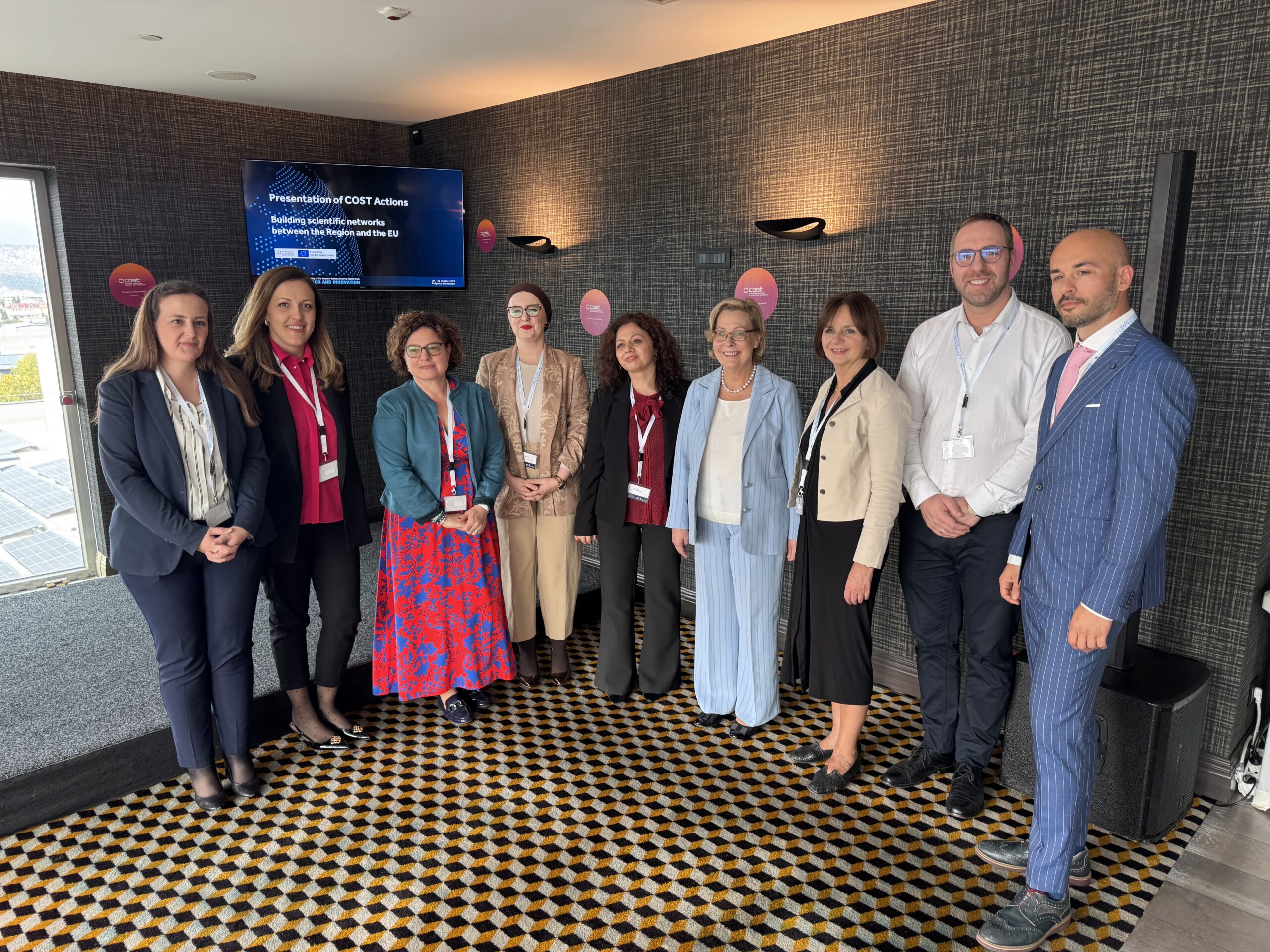On 20 October 2025, the European Cooperation in Science and Technology (COST) took part in the Western Balkans Ministerial Meeting in Podgorica, Montenegro, with a dedicated session highlighting its key role in promoting research cooperation in the region. More information about the visit is available here: https://www.cost.eu/shaping-the-future-of-research-and-innovation-in-the-western-balkans/
Prof. Åse Gornitzka, President of the COST Association met with various ministers and stakeholders such as EIT and RCC. She particularly higlighted that
“COST has played a pivotal role in fostering connections between researchers from the Western Balkans and their counterparts across Europe. Over the decades, these links have grown stronger, with an increasing number of researchers from the region actively participating in COST Actions. Creating open spaces where ideas and opportunities can grow, COST Actions provide an ideal platform for researchers and innovators from the Western Balkans to deepen their engagement with the ERA. COST has thus served as an important entry point, supporting the European integration of these countries through research and innovation cooperation.”
Presentation of Action participants
Six Action participants, each representing their community, were invited to share their journeys with COST.
Albania
Mirela Alhasani reported about her experiences:
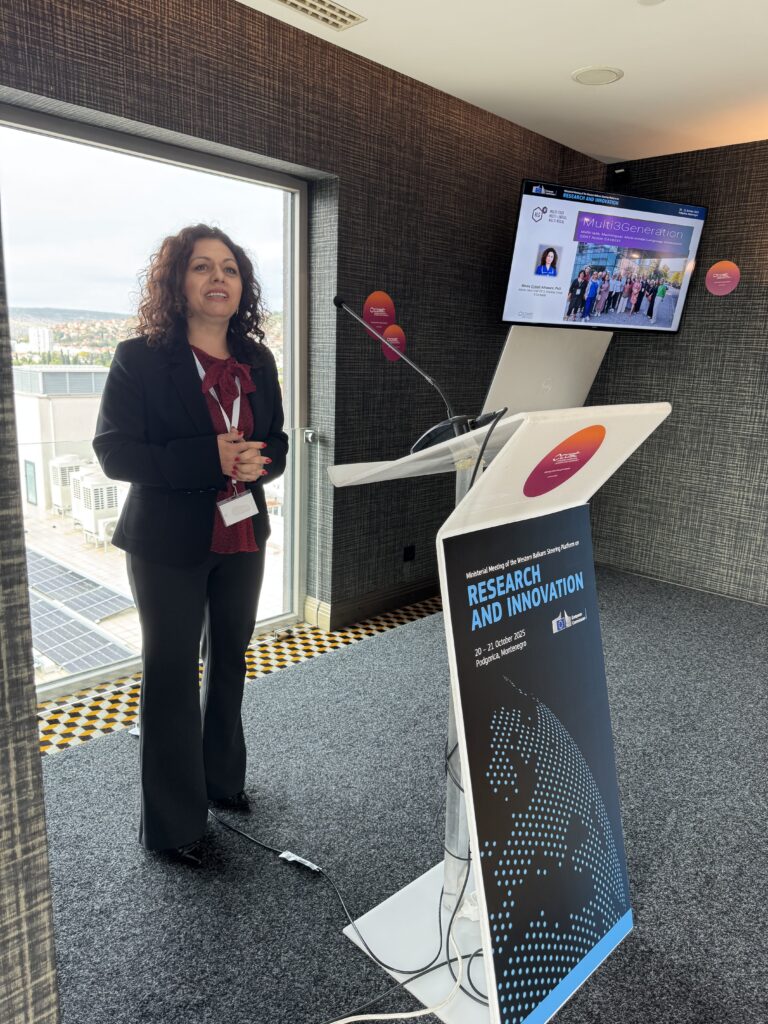
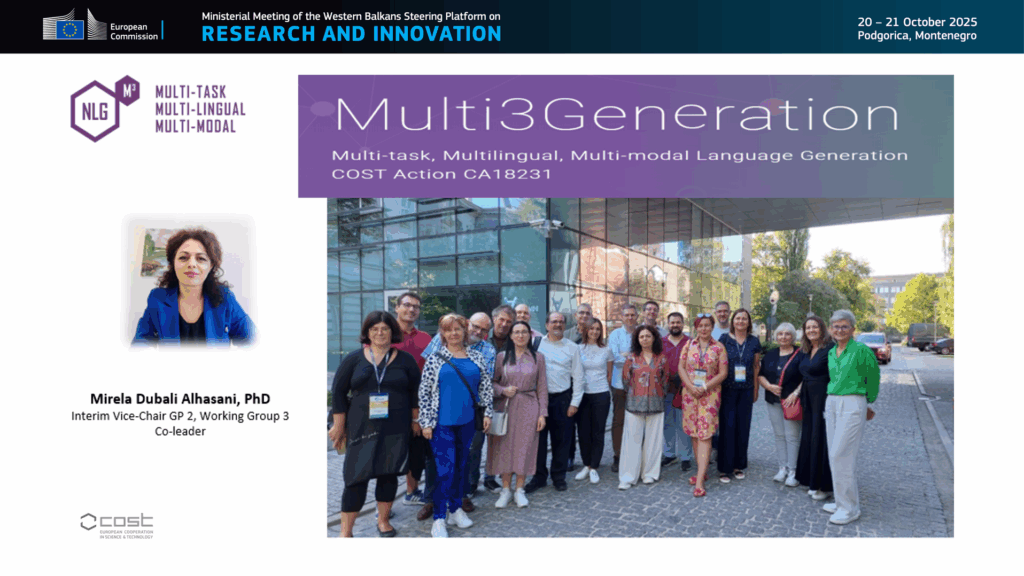
“My journey with Multi3Generation COST Action began in 2019, when I had the honour of representing Albania for the first time as a Management Committee Member, interim Vice-Chair, and co-leader of a working group. It was a transformative experience that opened opportunities for collaboration, organisation, exchange and leadership while raising Albania’s visibility along with my institution in the European Research Area.
COST created a truly inclusive space where smaller academic communities could connect and grow alongside Europe’s leading researchers. Six years later, Albania’s progress is inspiring: in 2024, 1,269 of 1,612 national COST members were women. These figures tell a story of empowerment, gender equality, and the growing contribution of Albanian researchers to Europe’s shared goals in science and innovation. COST is giving us the trust to co-lead, guide, and exchange with others as equal members.“
Bosnia and Herzegovina
Bosnia and Herzegovina Factsheet 2024
Adna Asic showcased success from her perspective.
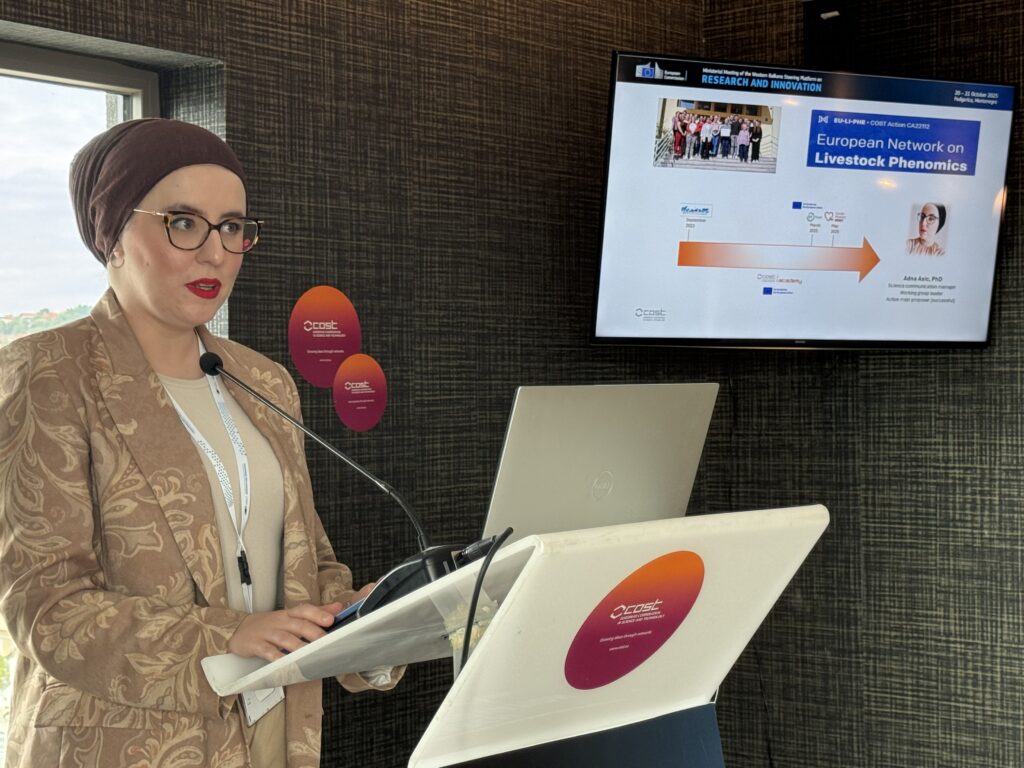
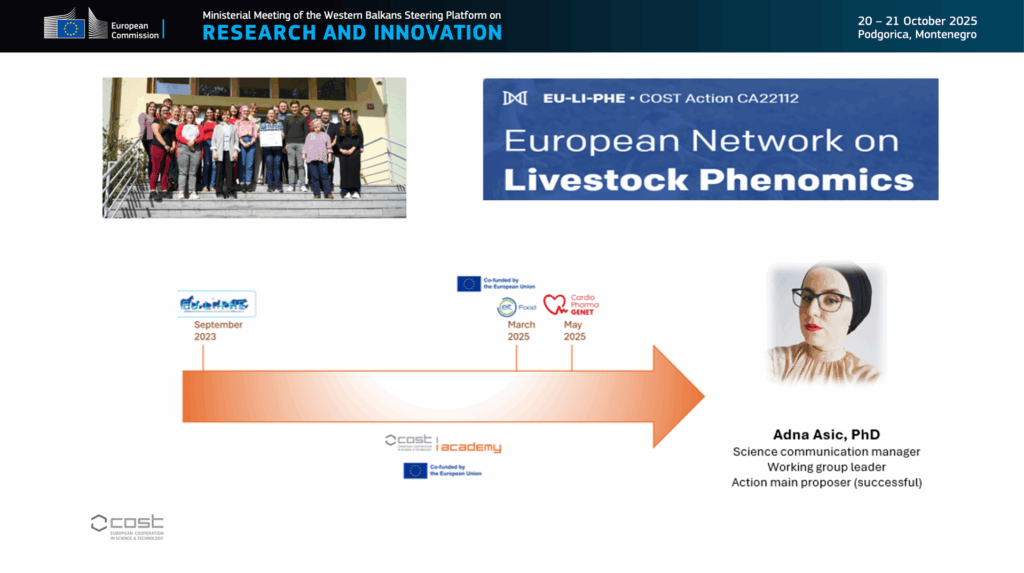
“Through two years of COST Academy trainings, I have grown from a Leadership Workshop attendee to becoming a Young Researcher and Innovator from an Inclusiveness Target Country who successfully obtained her own COST Action, the first-ever to be coordinated from Bosnia and Herzegovina. This achievement is a direct result of the continuous learning, collaboration, and mentorship within the COST community. The values that COST promotes: openness, inclusiveness, diversity, and excellence, have shaped my professional journey and personal growth, proving that empowering people truly leads to impactful European cooperation.”
Kosovo
Albulena Shala provided her higlights:
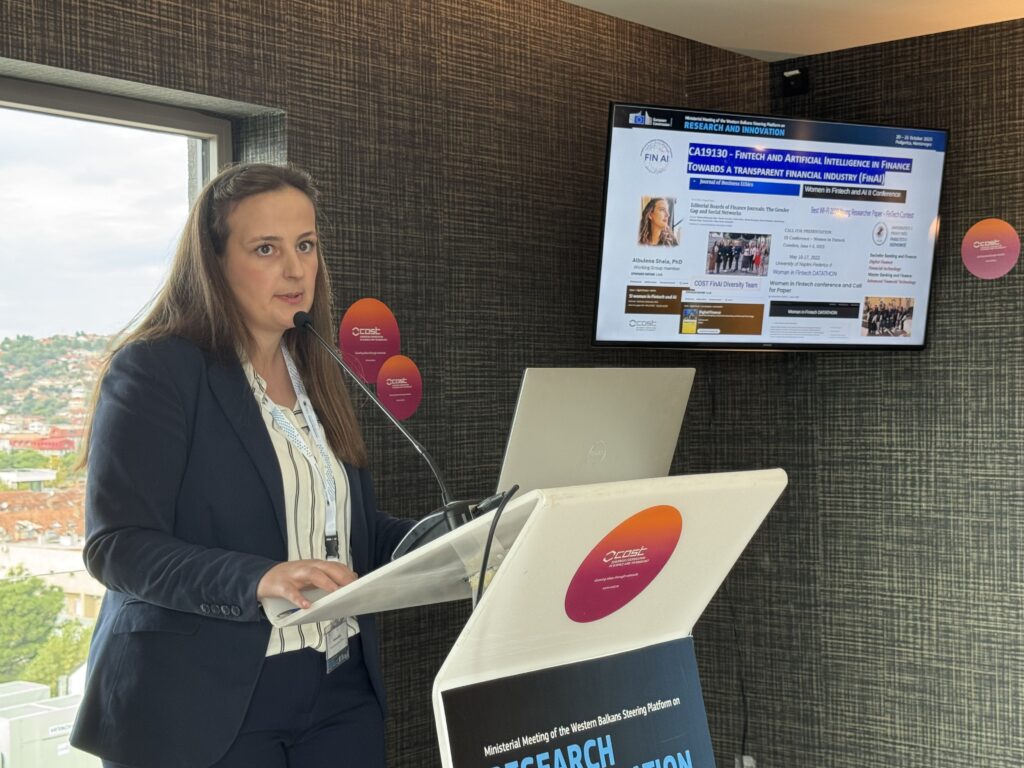
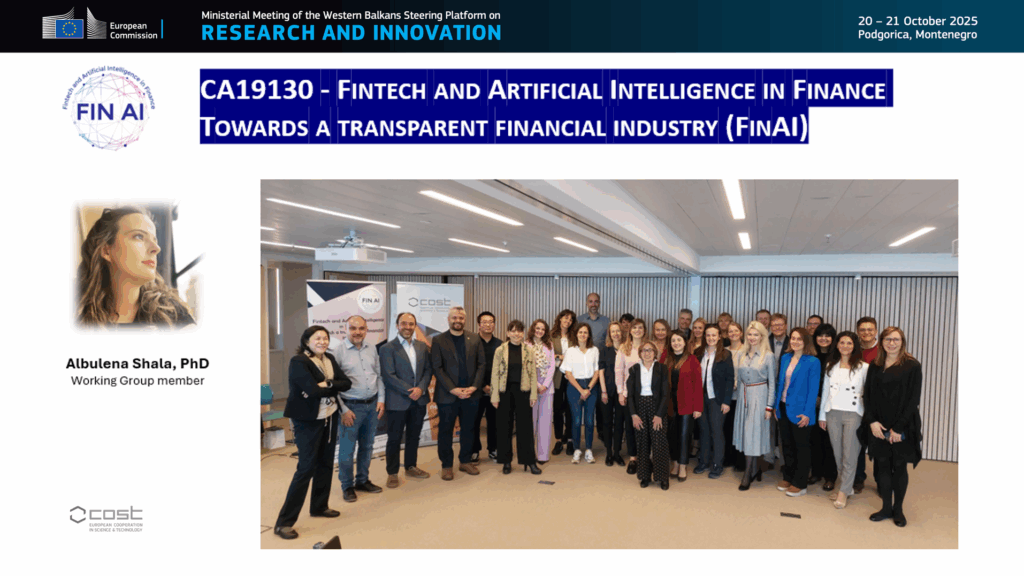
“Being part of FinAI COST Action was an invaluable experience that significantly contributed to both my personal and professional development. Through this collaboration, we identified a critical gap in the academic curriculum and worked together to develop a missing component that enabled students at the University of Pristina – Faculty of Economics to complete their full academic journey, with a curriculum enriched by innovative courses, including in the field of FinTech. This advancement not only strengthened local academic institutions but also increased opportunities for students to participate in international competitions and academic initiatives.
COST was truly about connections – it empowered researchers, fostered collaboration, and created meaningful opportunities for knowledge exchange. It allowed us to be actively involved in organising conferences, workshops, international competitions, and calls for papers across Europe and beyond. I am truly grateful to have been part of this journey”.
Montenegro
Masa Zdralevic shared her highlights:
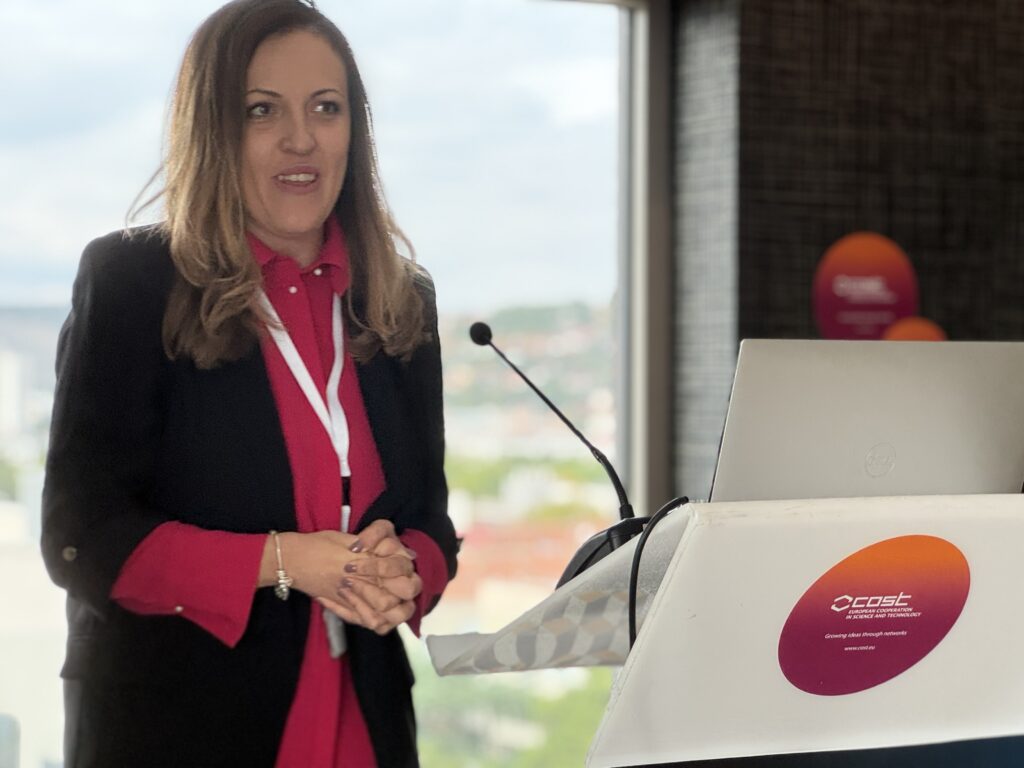
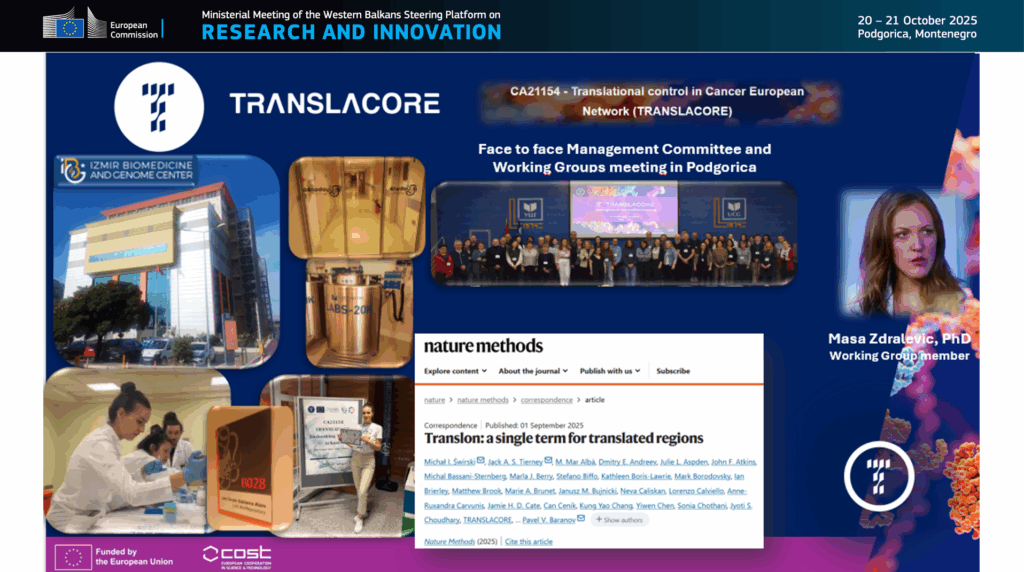
“COST has been a true catalyst for scientific growth — not only for me personally, but for my University as a whole. Through COST, I was able to collaborate with experts from disciplines that do not yet exist in my country, gaining access to advanced research infrastructure and know-how that significantly impacted my work.
These interdisciplinary partnerships have led to joint projects, training opportunities for young researchers, and even co-authorship in high-impact publications such as Nature Methods. COST creates an environment where researchers from smaller systems can connect, learn, and contribute on an equal footing with their European peers. It truly embodies the idea that science advances when people, knowledge, and opportunities are shared without borders.“
North Macedonia
North Macedonia Factsheet 2024
Vancho Adjiski reported his experiences:
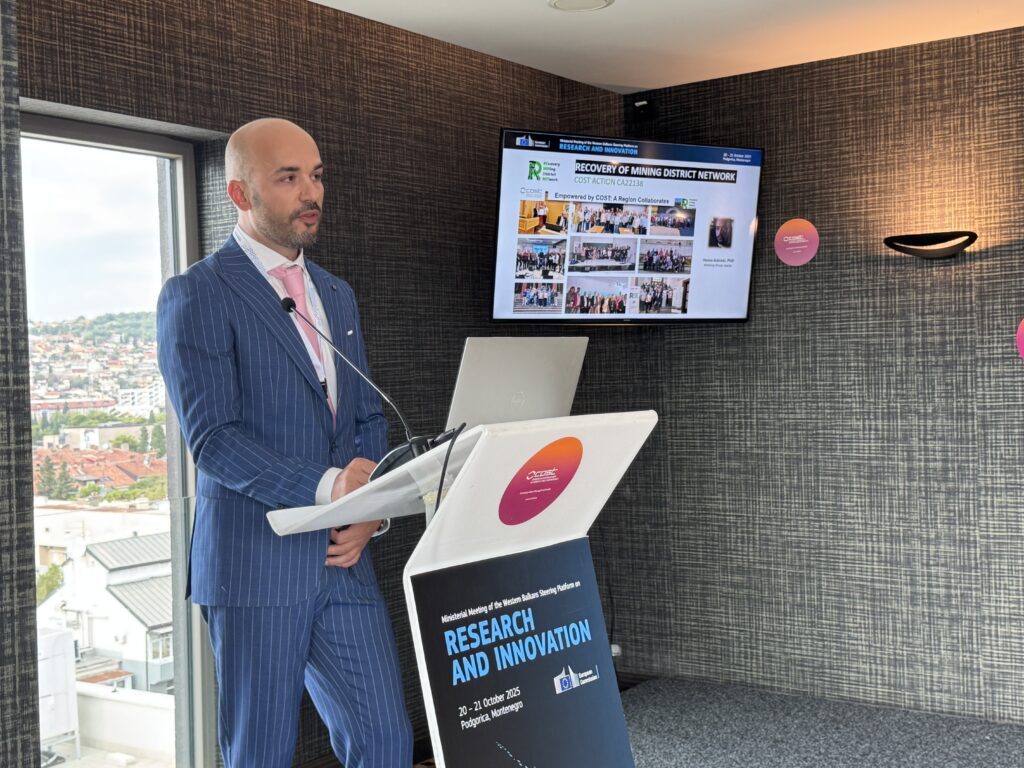
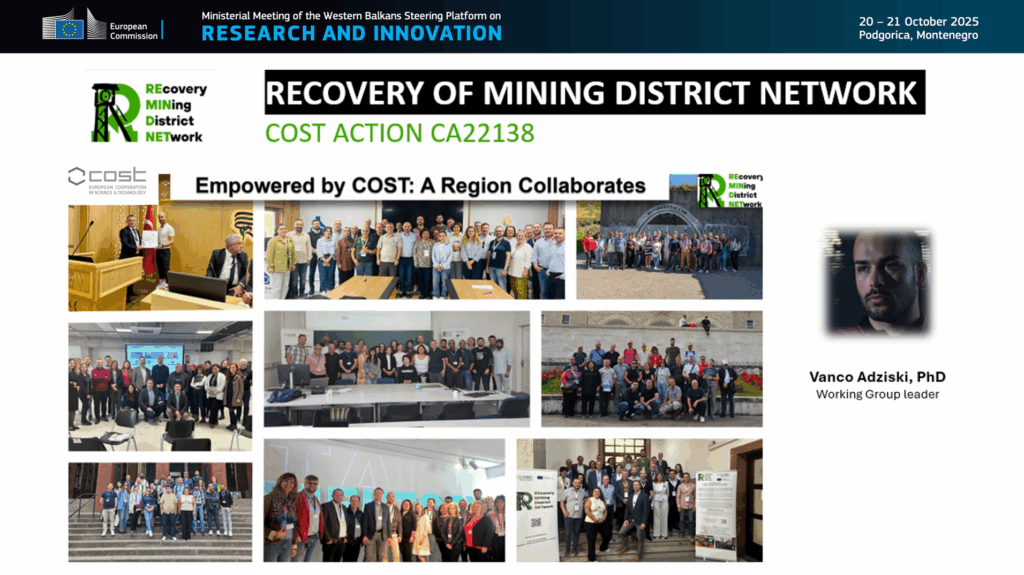
“Coming from North Macedonia, I faced a familiar Western Balkans challenge: legacy and active mining sites, fragmented data, and limited capacity. COST turned that local problem into a European collaboration. As a young researcher, being entrusted to lead WG3 in the REMINDNET Action accelerated my leadership, project management, and consensus-building. Through STSMs, training sessions, and peer exchange, we co-created practical, open tools: a Best Practices database, a Web GIS app, and a monitoring workflow. Together, these tools make post-mining assessments faster, reproducible, and comparable across sites. COST is about people: trust, mobility, and a network that helps early-career scientists learn by doing and deliver results that matter. It strengthened my career, expanded my partnerships, and gave our region a shared, scalable path from evidence to action.”
Serbia
The audience heard from Vladimir Mrkajic:
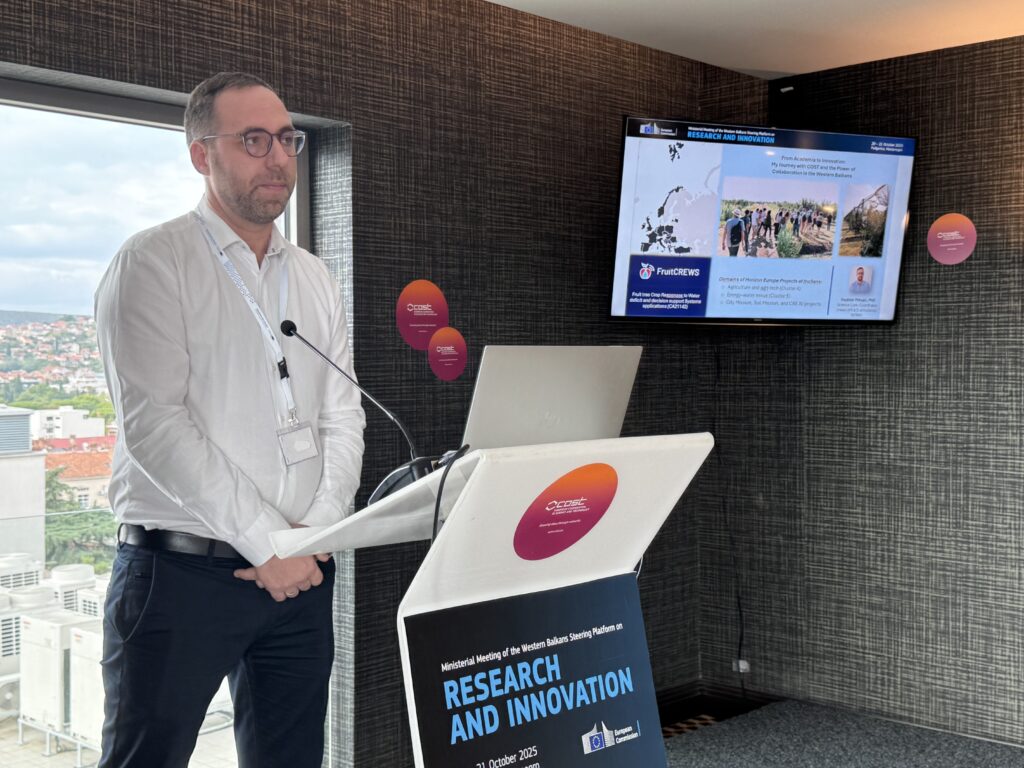
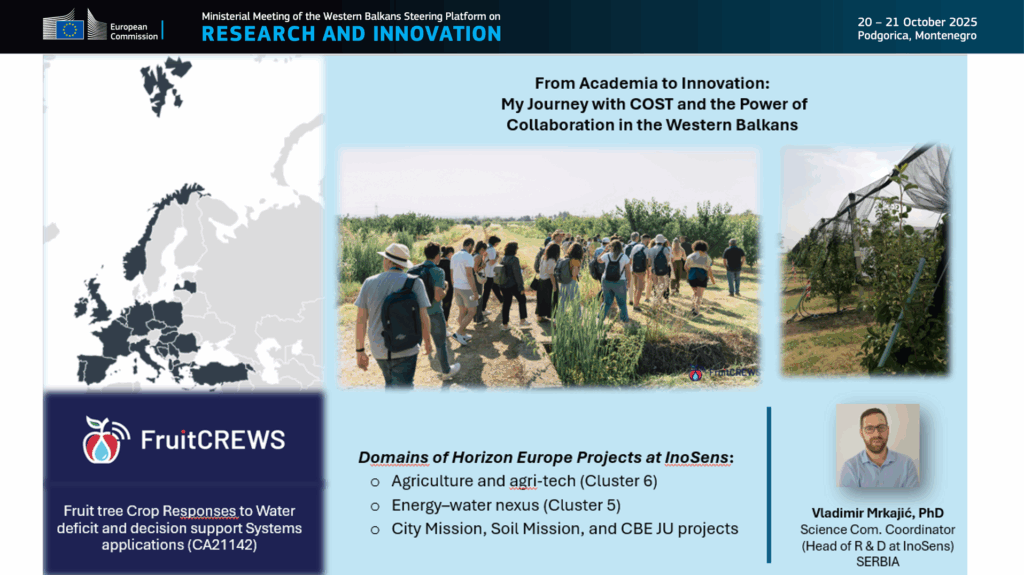
“COST has been very important in transforming my career from academia to the private sector. After completing my PhD, I joined an SME, continuing to collaborate with researchers through COST Actions such as FruitCREWS, as well as other international projects. This experience has allowed me to remain connected to science while applying my skills in communication and innovation management. COST’s trainings and networking opportunities have not only strengthened my expertise as a science communication professional but also helped me build a strong regional network of young researchers and practitioners. By transferring this knowledge to my team, we have enhanced our company’s capacity and competitiveness in European projects. COST truly empowers people, it builds bridges between research and industry and nurtures talent and collaboration across the Balkan region and beyond.”
The discussion drew on real-life case studies to spark fresh thinking about the future of R&I in the region. This conference aimed at bringing together influential voices from science, policy, industry, and finance, both from the Western Balkans and beyond, to exchange bold policy ideas, showcase success stories, and shape practical recommendations.
The presentation on COST Actions can be found below.
For more information please visit the source page of this news (https://www.cost.eu/shaping-the-future-of-research-and-innovation-in-the-western-balkans/), download the COST Western Balkans booklet and see on the COST dedicated page Western Balkans in COST Actions.

